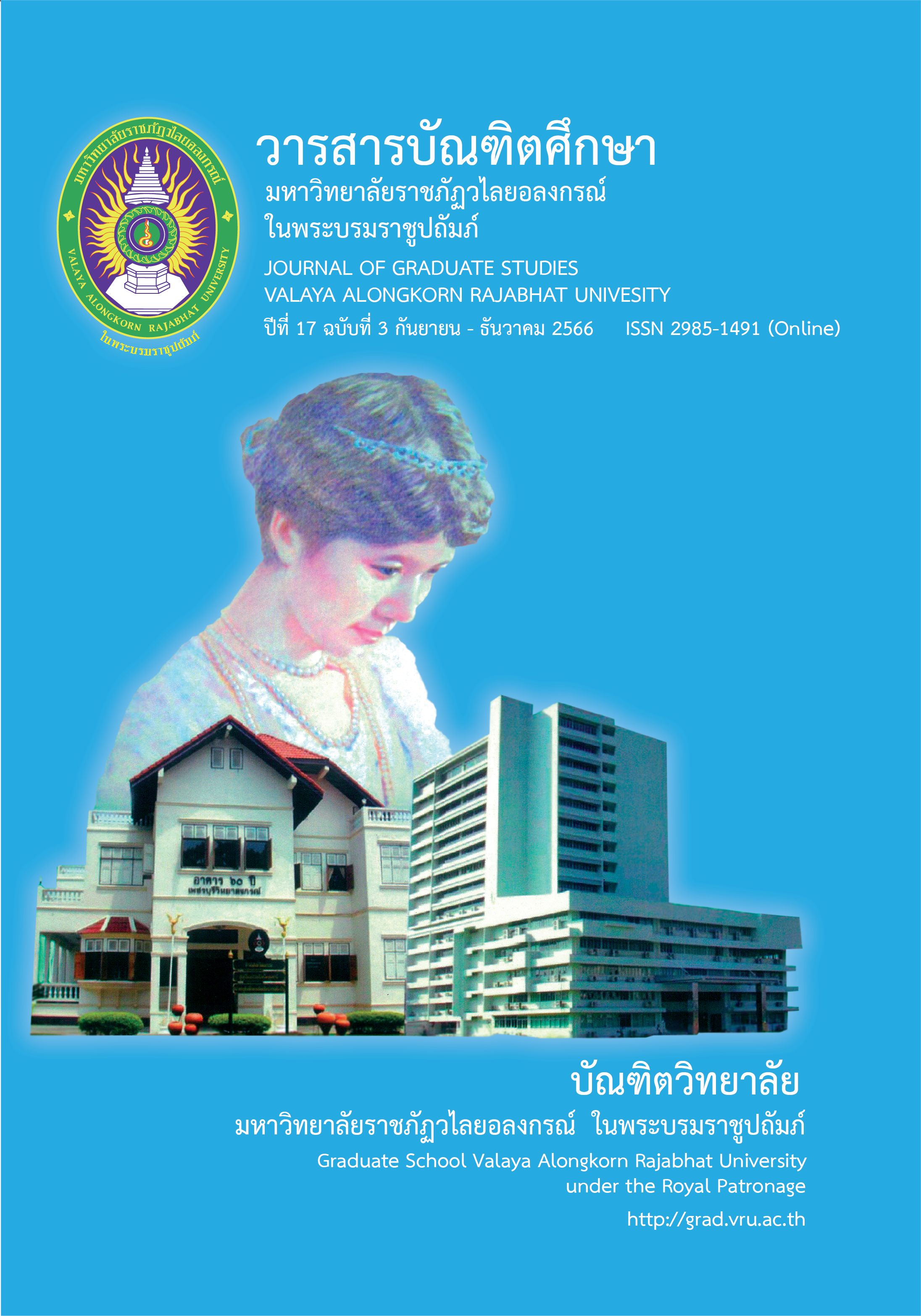THE IMPACT OF MICROCREDIT COURSE ON STUDENT’S LEARNING & SATISFACTION OUTCOME OF INDONESIAN STUDENTS DURING THE COVID-19 PANDEMIC
Main Article Content
Abstract
The objectives of this research were to 1) study the learning outcomes of Indonesian students through online courses by providing microcredit courses during the COVID-19 pandemic, and 2) study students' satisfaction with online teaching and learning to accumulate credits. The sample consisted of 385 Indonesian students who registered online to attend the microcredit courses at the Faculty of Physical Therapy at Mahidol University. The research instrument is online teaching method on the subject of the 2 credits: PTPT666 Evidence Based Practice for Physical Therapy and PTPT667 Advanced Motor Control and Motor Learning for Movement Therapy and instructional satisfaction questionnaires. Data analysis is based on descriptive statistics and reported by frequency distribution, percentage, mean, and standard deviation.
The results of this research showed that; 1) Learning outcome results in accumulating credits in the PTPT666 Evidence Based Practice for Physical Therapy course. There is one student who has passed the criteria and is accumulating credits from 11 people and students who have passed the criteria and are accumulating credits for PTPT667 Advanced Motor Control and Motor Learning for Movement Therapy are 42 students.And 2) the satisfaction results for teaching and learning to accumulate credits showed that in terms of self-evaluation, students were most satisfied with the knowledge gained from the course content (mean = 4.40) and the applicable of the knowledge (mean = 4.40). In terms of overall instructor evaluation, students were most satisfied with the instructor's ability to cover the expected course contents exactly (mean = 4.50). In terms of the overall course evaluation, students were most satisfied with the relevant topics and course content (mean = 4.47). Finally, students were most satisfied in terms of overall course satisfaction (mean = 4.33).
Article Details

This work is licensed under a Creative Commons Attribution-NonCommercial-NoDerivatives 4.0 International License.
บทความทุกเรื่องได้รับการตรวจความถูกต้องทางวิชาการโดยผู้ทรงคุณวุฒิ ทรรศนะและข้อคิดเห็นในบทความ Journal of Global of Perspectives in Humanities and Social Sciences (J-GPHSS) มิใช่เป็นทรรศนะและความคิดของผู้จัดทำจึงมิใช่ความรับผิดชอบของบัณฑิตวิทยาลัย มหาวิทยาลัยราชภัฏวไลยอลงกรณ์ ในพระบรมราชูปถัมภ์ กองบรรณาธิการไม่สงวนสิทธิ์การคัดลอก แต่ให้อ้างอิงแหล่งที่มา
References
Anekpunyakul, U. (2020). Khwāmsuknaikānrīanʻō̜nlaichūangrabātkhōwit-sipkāo khō̜ngnaksưksāparinyathō Laksūtbō̜rihānthurakitmahābanthit Mahāwitthayālairāmkhamhǣng [Happiness in online learning during COVID-19 of master’s degree students in master of business administration, Ramkhamhang University]. Master’s Thesis, Business Administration Management, Ramkhamhaeng University.
Baloran, E. T., Hernan, J. T. & Taoy, J. S. (2021). Course satisfaction and student engagement in online learning amid COVID-19 pandemic: A structural equation model. Turkish Online Journal of Distance Education. 22(1), 1-12.
Batdi, V., Doğan, Y., & Talan, T. (2021). Effectiveness of online learning: a multi-complementary approach research with responses from the COVID-19 pandemic period. Interactive Learning Environments. 1-34.
Boonroungrut, C., Thamdee, N., & Eiamnate, N. (2022). khwām sončhai nai kān rīan ʻō̜nlai rabop pœ̄t lang kān phrǣ rabāt yai khō̜ng khō wit - sipkāo nai sām prathēt klum ʻĀsīan: singkhapō ʻindōnīsīa læ Thai [Public interest in MOOC after COVID-19 pandemic outbreak among 3 ASEAN countries: Singapore, Indonesia and Thailand]. CMU Journal of Education. 6(1), 29-43.
Castro, M. D. B., & Tumibay, G. M. (2021). A literature review: efficacy of online learning courses for higher education institution using meta-analysis. Education and Information Technologies. 26, 1-19.
Darawong, C. & Widayati, A. (2022). Improving student satisfaction and learning outcomes with service quality of online courses: evidence from Thai and Indonesian higher education institutions. Journal of Applied Research in Higher Education. 14(4), 1-15.
Dixson, M. (2015). Measuring student engagement in the online course: the online student engagement. Scale (OSE). Online Learning. 19(3), 1-15.
Gopal, R., Singh, V. & Aggarwal, A. (2021). Impact of online classes on the satisfaction and performance of students during the pandemic period of COVID-19. Education and Information Technologies. 26, 6923–6947.
Handelsman, M. M., Briggs, W. L., Sullivan, N., & Towler, A. (2010). A measure of college student course engagement. The Journal of Educational Research. 93(3), 184–191.
Jantarapakdee, R. & Intaput, P. (2022). Patčhai thīsong phon tō̜ khwām naikānrīanʻō̜n laikhō̜ng nak sưk sā phayā bānnaisathānkān kānrabāt khō̜ng chư̄a wai ratkhōwit-sipkāo [Factors affecting Happiness in Online Learning among Nursing Students during the COVID-19 Pandemic Situation]. The Journal of Faculty of Nursing, Burapha University. 30(2), 95-107.
Luo, F., Gheshlagh, G. R., Dalvand, S., Saedmoucheshi, S., & Li, Q. (2021). Systematic review and meta-analysis of fear of COVID-19. Frontiers in Psychology. 12, 1-11.
Ministry of Education in Thailand. (2021). Sūphai COVID-sipkāo rōngrīanyut khwāmrūmaiyut [Education strategic plan]. Retrieved from https://www.moe.go.th/.
Shehzadi, S., Nisar, Q. A., Hussain, M. S., Basheer, M. F., Hameed, W. U., & Chaudhry, N. I. (2020). The role of digital learning toward students’ satisfaction and university brand image at educational institutes of Pakistan: a post-effect of COVID-19. Asian Education and Development Studies. 10(2), 276–294.
Van Wart, M., Ni, A., Medina, P., Canelon, J., Kordrostami, M., Zhang, J. & Liu, Y. (2020). Integrating students’ perspectives about online learning: a hierarchy of factors. International Journal of Educational Technology in Higher Education. 17(53), 1-22.
World Health Organization. (2020). COVID-19-WHO Thailand situation. Retrieved from https://www.who.int/docs/default-source/searo/thailand/2020-03-22-tha-sitrep-29-covid19-final.pdf?sfvrsn=aba4d51e_0.pdf


